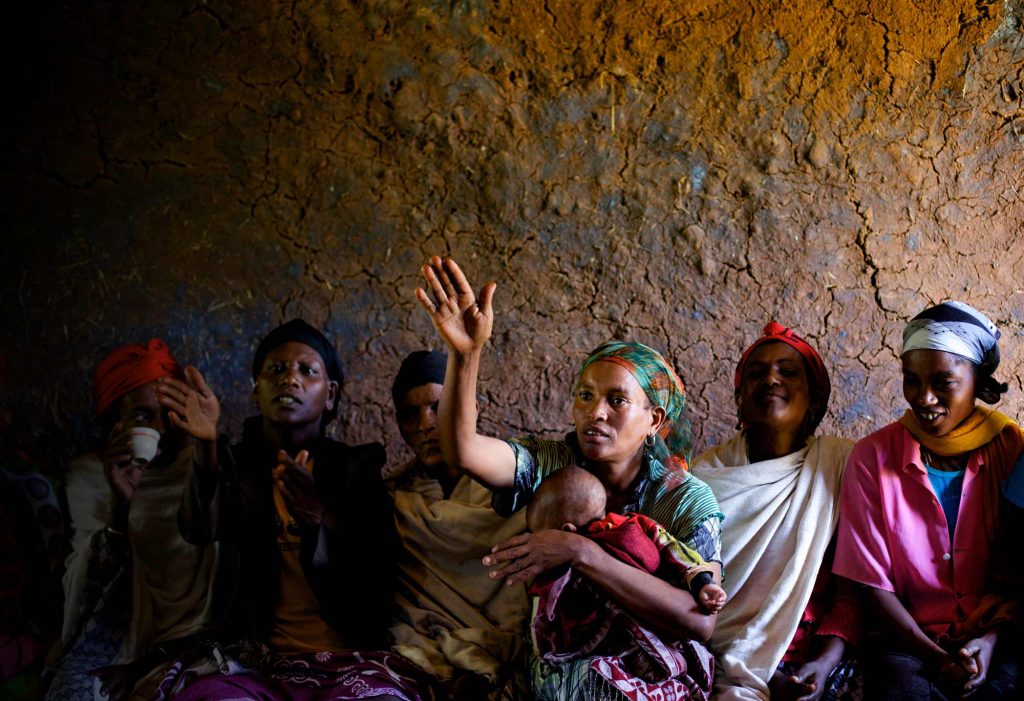
Community Health
Family & Community Health
International Medical Corps recruits community health workers (CHWs) from the communities we serve. Working with CHWs and community leaders helps to ensure that our work prioritises the true health needs of the community and improves access to basic health services.
An example of this approach, known as integrated community-based case management (iCCM), is used to treat childhood illnesses such as diarrhoea, respiratory infections, malaria and acute malnutrition. It relies on International Medical Corps-trained CHWs to detect and diagnose, provide first-line treatment, refer all complicated cases to the nearest health facility and educate caretakers on home support and recognition of danger signs.
Moreover, our extensive networks of community volunteers engage in risk communication and community engagement (RCCE) that promotes health and well-being as well as community mobilisation for preventive and curative services.
Actively seeking out and involving community residents is key to implementing effective community-level programmes, which is why International Medical Corps pursues this approach at every stage of the programme cycle. We believe that community ownership and stewardship are key to building sustainable programmes that ultimately contribute to better health outcomes for all.
Our approach aims to:
- mobilise members of the community to advocate for their own health and for better health outcomes;
- train, support and supervise CHWs and community volunteers, to enable them to manage common childhood and maternal ailments;
- educate and inform community residents about positive health-seeking behaviours and create demand for quality services; and
- engage with and enable communities to actively participate in and contribute to health programming.
Our Response
To achieve success in improving communities’ health and well-being, we draw on expertise already present by employing local residents where possible. In fact, more than 95% of International Medical Corps staff members worldwide recruited from the communities they serve.
Community-based programming creates more favourable outcomes than the alternatives because such programmes better fit the community and increase local buy-in. For example, we’ve found community outreach workers to be extremely successful in promoting community health education.
Our use of community health is part of an integrated strategy and is present in all of our work, including nutrition, mental health and psychosocial support, water, sanitation and hygiene, and more.
We have implemented family and community health activities in some 80 countries on six continents since our founding.
In 2024 alone, we provided more than 3.7 million people with health education messages.
Across Lebanon, CHWs hosted about 2,400 age-based health clubs, reaching nearly 16,700 people on topics including maternal health, non-communicable diseases, the needs of pregnant and lactating women, and nutrition.